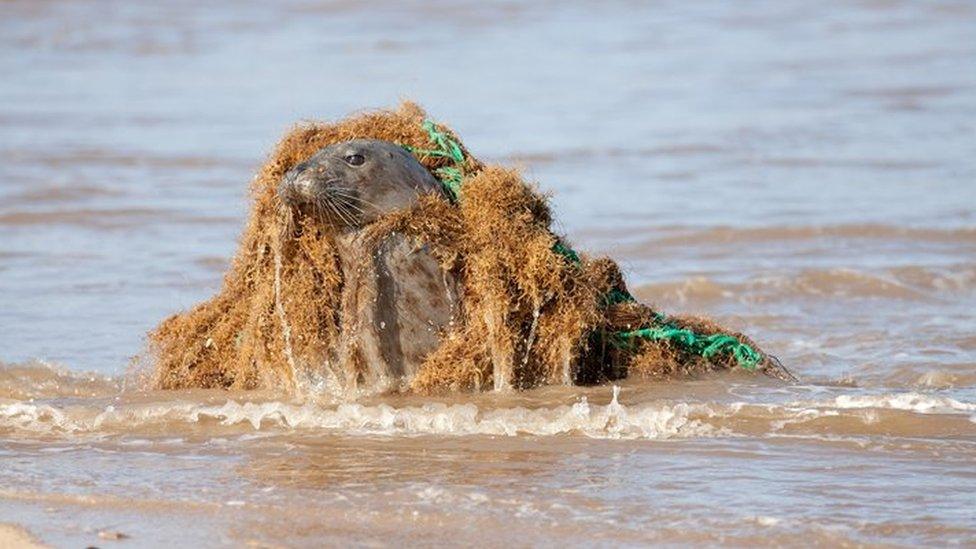Plastic pollution: New project launched to recycle UK's fishing nets
- Published
- comments

Sea animals such as seals can get caught in fishing gear
For many years, the question of what should be done with old fishing nets in the UK has been a real issue.
Fishermen would often dump them at sea, or they would be brought to shore and thrown away in landfill.
These nets are often made of materials that aren't biodegradable and take many decades to break down.
As well as adding to the problem of plastic pollution, they can also be extremely harmful to marine life such as seals and turtles as they can become caught and stuck in the nets.
However a new project means that for the first time, trawling nets can be recycled in the UK.
Read on to find out what unexpected everyday items are being made from the recycled nets and let us know what you think in the comments below!
What's happened?
Abandoned fishing nets, lines and ropes are thought to make up around 10% of the world's marine litter
More than 640,000 tonnes of nets, lines, pots and traps used in commercial fishing are dumped globally in the sea every year, according to the United Nations.
Until now, the only option to recycle fishing gear was by exporting them to other countries in Europe.
But a ground-breaking project is now hoping to help tackle the the problem here in the UK.
Environmental charity Keep Britain Tidy has teamed up with plastic processing experts to install a free recycling service at UK harbour sides to encourage the recycling of both nets and ropes.
As fishing nets are made of many different materials, they are first sorted so that the plastic parts which can be recycled can be sent off to be processed.
So far it's proved successful with more than 40 tonnes of trawl net being turned into recycled plastic pellets which can be used for items such as footwear!
It is hoped that, over time, the project can be rolled out to more harbours around the country.
